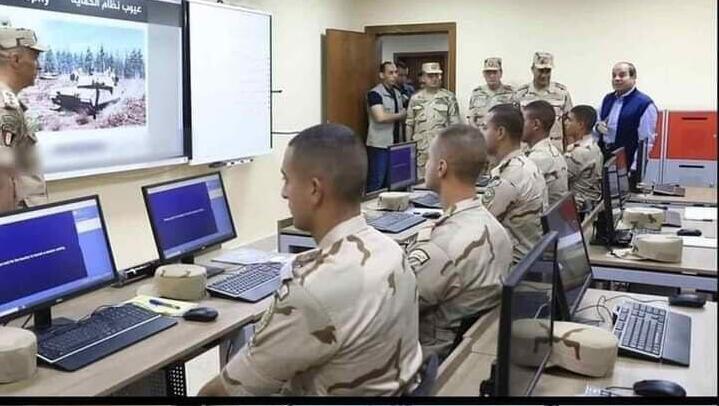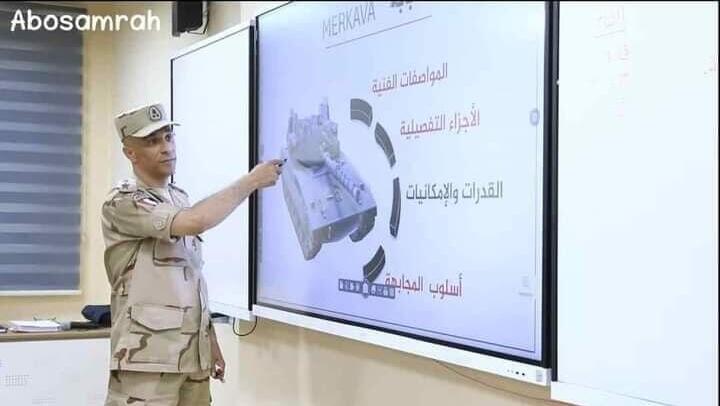Getting your Trinity Audio player ready...
Last weekend, Egyptian President Abdel Fattah el-Sisi paid a visit to the country's military academy, which was extensively covered by Egyptian media.
Images from the visit showed cadets being briefed on the Israeli Merkava tank. This has sparked discussions in Arab media and communication channels, particularly during these tense days when there is ongoing debate about potential Israeli military action in Rafah and negotiations for a cease-fire in Gaza.
2 View gallery


Egyptian soldiers studying Israeli Merkava tank in presence of President Abdel Fattah el-Sisi
Hezbollah-affiliated Lebanese newspaper Al Akhbar reported, citing a senior Egyptian source, that "the publication of the photos was intended to send a clear message to Israel that Egypt possesses combat capabilities and is studying Israeli weaponry."
According to the report, the photos from President el-Sisi’s visit, released by Egypt’s presidential spokesperson, were quickly scrubbed off official accounts to avoid upsetting the Israelis.
According to sources speaking with the newspaper, the removal came following discussions at the Egyptian military high command. The report added that "keeping the photos was deemed unnecessary as the message had already been conveyed."
London-based Arabic-language Saudi newspaper Asharq Al-Awsat reported Sunday that some social media users linked the release of the photos to Egypt’s warnings to Israel to avoid action in Rafah. The paper noted that the Egyptian president had repeatedly warned Israel against military action in Rafah, emphasizing his country’s "rejection of the plans due to their humanitarian implications for the residents of Gaza."
Additionally, the head of Egypt’s intelligence service, Diaa Rashwan, cautioned against a "reoccupation" of the Philadelphi Corridor on the Egyptian border, saying it would pose a serious threat to Egyptian-Israeli relations.
2 View gallery


Egyptian soldiers studying Israeli Merkava tank in presence of President Abdel Fattah el-Sisi
Asharq Al-Awsat also reported that some see these images as a signal that Egypt is analyzing the strengths and weaknesses of the Israeli tank and how to counter it. They argue that this perception sends a reassuring message about the capabilities of Egyptian military academies to study and confront various types of weaponry.
Nasr Salem, a former senior figure in the Egyptian forces, told the newspaper that studying Israeli weaponry is routine. "In the study of enemy armament, we learn its strengths to counter them and its weaknesses to exploit and destroy it in direct conflict," Salem said.
"Military academic study includes all the equipment and weapons of the enemy and this has been happening for years in various military institutes and academies."
Another former senior Egyptian military official, Samir Farag, told Asharq Al-Awsat that the published photos carry both political and military messages. According to him, the message to Egypt is that "the army is prepared and ready to handle whatever happens," and the second message to Israel is that "the forces are ready to respond to any threat to national security."
Meanwhile, other Egyptian leaders such as Foreign Minister Sameh Shoukry and Prime Minister Mostafa Madbouly have also voiced opposition to Israeli activities in Rafah in recent days. Speaking at an economic forum in Riyadh on Monday, Madbouly said, "Any attack in Rafah will lead to disaster and cause the displacement of Palestinians seeking a safe place."



